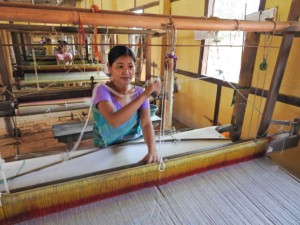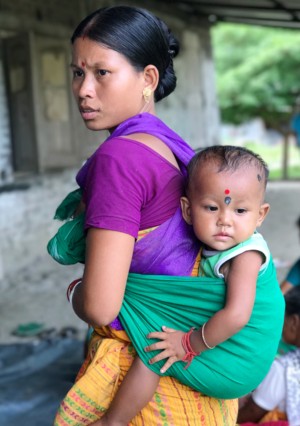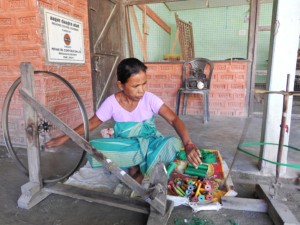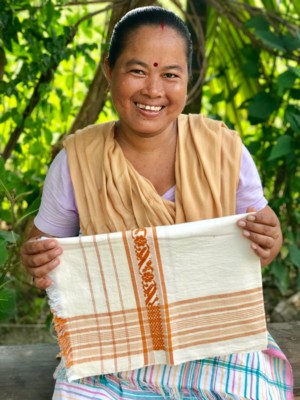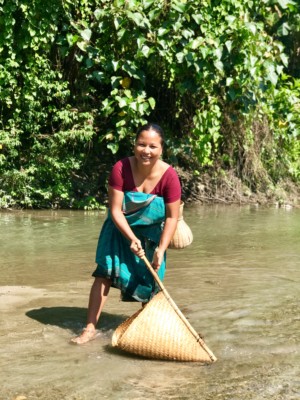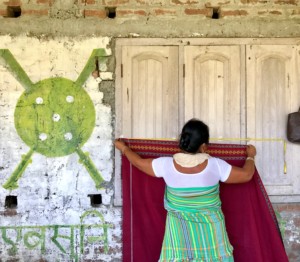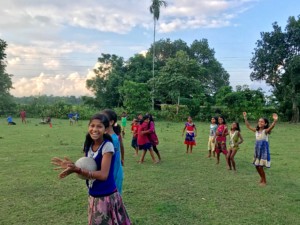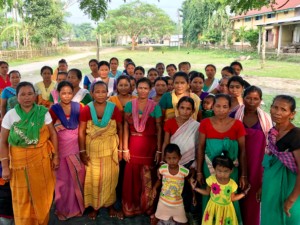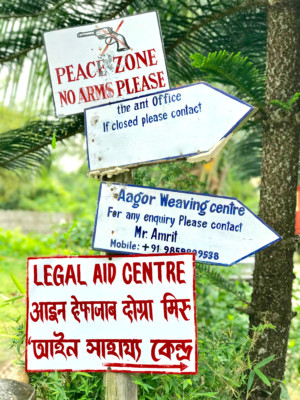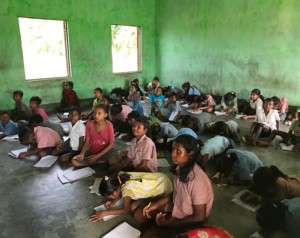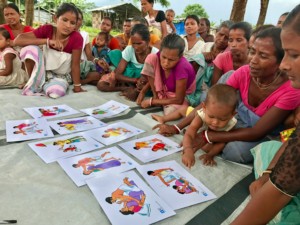Weavers of Assam, India
In Sep-Oct 2017, Anne spent a month with a remarkable non-profit called ‘the ant’ and its weaving offshoot, Aagor Dagra Afad.
Both organizations are located in Bodoland, an autonomous territory within the Indian state of Assam, near the Indo-Bhutan border. Bodoland is slowly emerging from nearly three decades of conflict and unrest, linked to the indigenous Bodo people’s struggle for an autonomous homeland.
In the Bodo community, the traditional skill of weaving is passed on from mother to daughter, and is considered a prized trait in a prospective bride. Every Bodo house has a loom and in their spare time, the women weave clothes for themselves and their family members.
The founders of ‘the ant’ have been able to tap into this traditional weaving knowledge of the local Bodo women, and create livelihood opportunities for them via the weaving entity Aagor Dagra Afad.
Aagor is the Bodo word for ‘design’ while daagra and afad mean ‘weaver’ and ‘organisation’ respectively in the Bodo language. The organisation is entirely managed and run by the weavers.
The women are commissioned to weave fabrics, which are then fashioned into garments and sold in a few stores in India. A small quantity of fabrics are exported internationally as well. These handwoven fabrics have intricate motifs inspired by nature, including representations of plants, birds and animals. Aagor Dagra Afad also serves to keep the tradition of Bodo weaving alive, which is at risk of dying out, as much of the younger generation has moved on to office jobs.
Anne describes the weavers she met as ‘real life super-women’, coping with unimaginable challenges, both personal and systemic; despite their lack of education, and with very limited financial resources. And they still retain a smile on their faces and their generous hearts!
‘the ant’ works in several sectors in rural Assam, including health, education, livelihoods, as well as on issues pertaining to women’s equality and rights.
